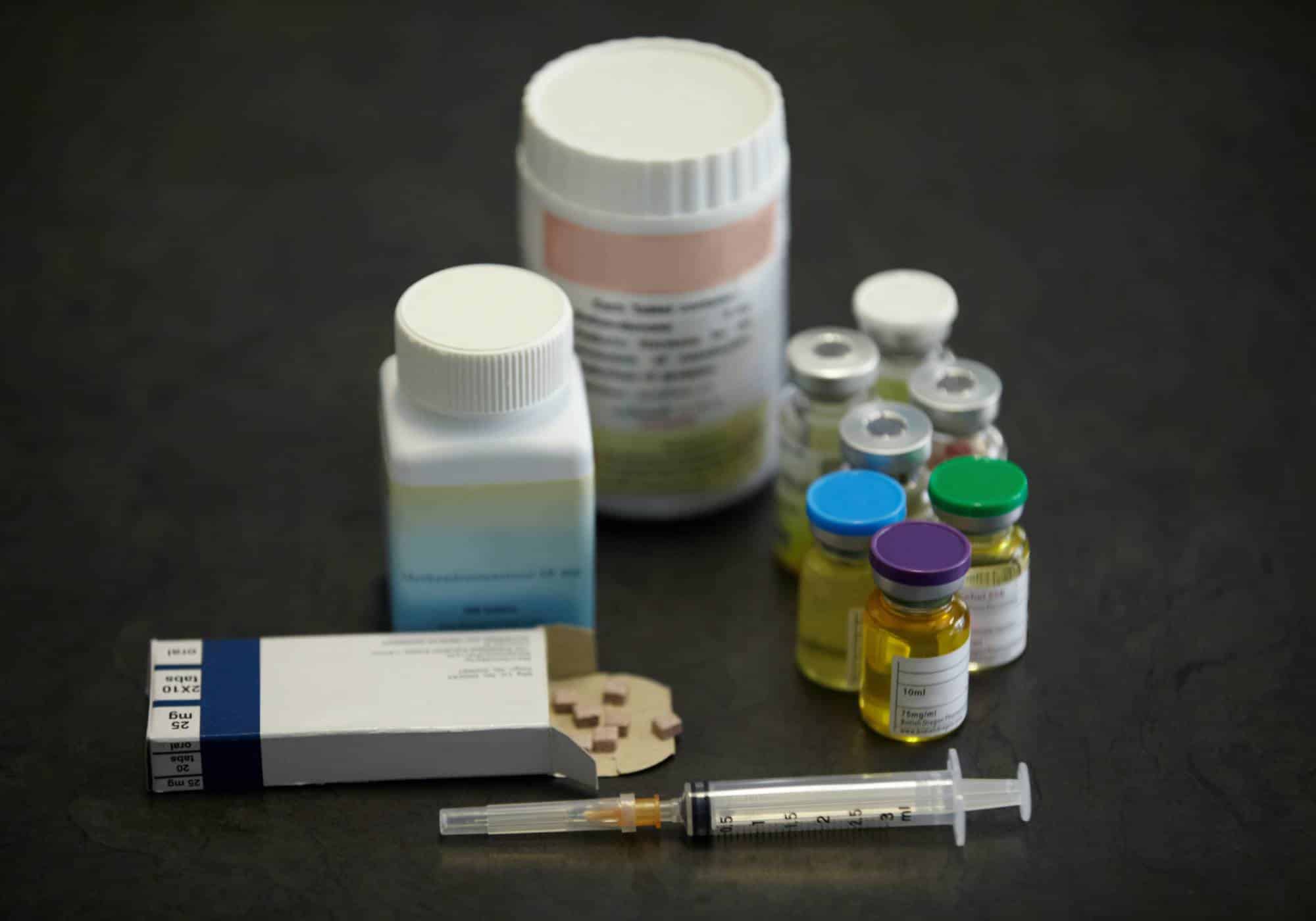Fentanyl Withdrawal Symptoms and Timeline
Apache, Dance Fever, Friend, Goodfellas, Jackpot – these are not just street names for fentanyl, they’re a misleading mask for a drug that’s far from friendly or rewarding. Fentanyl, instead, lures individuals into a false sense of security and relaxation, leaving behind a trail of financial loss, damaged relationships, and ongoing substance abuse.
As a potent opioid prescribed by healthcare professionals, fentanyl is used to manage moderate to severe pain and for sedation during medical procedures. However, its use can spiral into an addiction that seems insurmountable, turning a controlled dance into chaotic, destructive patterns.
While opioid dependence is treatable, it’s accompanied by withdrawal symptoms. The withdrawal timeline varies from person to person, influenced by the extent and frequency of use, yet certain symptoms are commonly experienced.
Read on to learn more about navigating the challenges of fentanyl detox and withdrawal, and the approaches to treating this form of drug dependency.
Fentanyl Withdrawal Signs
Identifying early signs of fentanyl withdrawal is key to effectively managing and navigating the detox process. Awareness of these symptoms allows individuals and their support networks to seek necessary help promptly. Here are some initial signs that may indicate the onset of fentanyl withdrawal:
- Escalating Drug Cravings: An increasing desire for fentanyl, marked by a strong compulsion to use the drug, often marks the start of the withdrawal timeline.
- Mood Changes: As the body starts adapting to the absence of fentanyl, noticeable mood changes such as heightened irritability, restlessness, or anxiety may occur.
- Physical Discomfort: Early withdrawal may manifest mild physical symptoms like muscle aches, headaches, or gastrointestinal issues as the body begins adjusting to life without fentanyl.
- Sleep Disturbances: Insomnia or restless sleep patterns can be early indicators of fentanyl withdrawal.
- Excessive Yawning: One of the early physical signs of fentanyl withdrawal is frequent, uncontrollable yawning.
As withdrawal progresses, these symptoms can become more severe, highlighting the need for timely medical intervention and access to appropriate treatment resources. If you or someone close to you is experiencing signs of fentanyl withdrawal, it’s crucial to consult healthcare professionals or addiction treatment specialists for support and guidance through this challenging period.
Fentanyl withdrawal stems from the body’s adaptation to regular fentanyl use, a powerful opioid. When fentanyl is used consistently or in large doses, the body becomes reliant on it for normal functioning. Over time, the body alters its chemical balance, developing a tolerance that necessitates higher doses for the same effect. Abrupt cessation or significant reduction in fentanyl use triggers a readjustment phase in the body, leading to various withdrawal symptoms.
Fentanyl Withdrawal Timeline
The experience of fentanyl withdrawal can vary from person to person, but there is a common timeline that most individuals tend to follow.
Here’s a general outline of what to expect during fentanyl withdrawal:
- 8-24 hours: Initial mild withdrawal symptoms start to appear.
- 1-2 days: Symptoms intensify, often resembling a severe flu.
- 3 days: This is typically when withdrawal symptoms reach their peak.
- 5-7 days: Symptoms gradually begin to lessen, and a sense of normalcy returns.
It’s crucial to understand that while the physical symptoms of fentanyl withdrawal usually last about a week, cravings can linger much longer. Having access to a professional recovery center is vital for ongoing support as you navigate the longer-term aspects of recovery.
If you or someone you know is going through fentanyl withdrawal, it’s essential to seek professional medical assistance and support. This ensures a safe and effective path through the withdrawal process. Wondering how to treat fentanyl withdrawal? Let’s explore.

Symptoms of Fentanyl Withdrawal
Fentanyl withdrawal symptoms are typically categorized into two groups: common and severe.
The common symptoms often include:
- Anxiety
- Restlessness
- Insomnia
- Muscle and bone pain
- Stomach cramps
- Nausea and vomiting
- Diarrhea
- Sweating, chills, and goosebumps
- Runny nose
On the other hand, severe symptoms might encompass:
- Dehydration
- Fever
- Increased heart rate and blood pressure
- Strong cravings for fentanyl
- Depression
- Irritability
- Mood fluctuations
- Seizures
Fentanyl’s effectiveness in pain relief can lead to rapid dependence, making it challenging for many to quit. Stopping fentanyl abruptly, or ‘cold turkey,’ is often not feasible due to the intense discomfort it causes. Therefore, undergoing withdrawal in a controlled setting with medical professionals is crucial for safety and effectiveness.
How Long Does Fentanyl Withdrawal Last?
The timeline for fentanyl withdrawal varies from person to person. Generally, symptoms begin 12 hours after the last dose. The initial days are often the most challenging, with the acute phase potentially extending over several weeks.
Each individual’s health background plays a role in how their body reacts to each stage of withdrawal.
Early Withdrawal
The journey through fentanyl withdrawal is intricate and can be prolonged. It’s important to understand that symptoms typically start within 12 hours of the last dose and peak between 1-3 days. This period can be particularly intense, but with time and patience, the symptoms will gradually lessen.
Undergoing fentanyl withdrawal without medical supervision is not advisable. The process can be dangerous and potentially life-threatening if not managed in a controlled, medically supervised environment.
Acute Withdrawal
This stage usually kicks in a few days to a week after the last fentanyl use. It’s during this phase that the most severe physical symptoms manifest. Emotional support and guidance from medical professionals experienced in opioid withdrawal and addiction are crucial during this time.
Long-term Withdrawal
In this phase, some physical withdrawal symptoms persist, while psychological symptoms like cravings, sleep disturbances, irritability, and anxiety continue for many. The duration of this phase varies, lasting weeks or months for some, and up to a year for others in their recovery journey.
Factors Influencing Withdrawal Duration
Several personal factors can affect the fentanyl withdrawal process:
- Dosage: Given fentanyl’s potency, the dosage amount significantly influences withdrawal intensity. Higher doses typically lead to more severe withdrawal symptoms.
- Duration and Frequency of Use: The longer and more frequently fentanyl is used, the more the body adjusts to its presence, potentially prolonging the withdrawal process.
- Age: Younger individuals often metabolize substances faster than older individuals, which can shorten the withdrawal duration.
- Physiology: Genetic factors can affect how opioid receptors respond to fentanyl, influencing the severity of withdrawal symptoms.
- Mental Health: Those with mental health issues, such as anxiety or depression, may find it more challenging to cease substance use. Withdrawal symptoms can be particularly difficult to manage without professional support.
Fentanyl Detox and Withdrawal Treatment
Detoxification, also known as medically managed withdrawal, is a critical process that ensures an individual’s safety and comfort while their body eliminates fentanyl and other substances.
Undergoing medical detox from opioids is typically the initial step in a comprehensive treatment plan. Detox alone is usually not enough for long-term recovery; it’s the starting point for a more extensive treatment approach.
The treatment is tailored to each individual’s needs and the severity of their opioid use disorder. It encompasses a holistic approach that addresses various aspects of the individual’s life. This includes evidence-based behavioral therapies, both individual and group counseling, and medication-assisted treatment, all aimed at supporting lasting recovery beyond the detox and withdrawal stages.
Duration of Fentanyl Detox
The time required for the body to detox from fentanyl varies from person to person. Factors influencing the severity of symptoms include the dosage, frequency, and duration of fentanyl use, as well as the drug’s potency.
Medications Used in Fentanyl Detox
Managing withdrawal symptoms and controlling cravings can be effectively achieved through medication.
Healthcare providers may prescribe specific medications not only to alleviate withdrawal symptoms but also for long-term use to manage cravings, maintain opioid abstinence, and reduce overdose risks. These medications include:
- Methadone: An opioid agonist that activates the same brain receptors as fentanyl but without producing a high. Methadone, when used as prescribed, can block cravings and ease withdrawal symptoms.
- Buprenorphine: A partial opioid agonist that binds to the same receptors as fentanyl but with limited activation, helping to reduce withdrawal symptoms and cravings.
- Lofexidine Hydrochloride: A non-opioid option approved by the FDA in 2018, which can reduce the severity of withdrawal symptoms, aiding in the discontinuation of fentanyl use.
Fentanyl Withdrawal FAQ
How Long Does Fentanyl Withdrawal Last?
Fentanyl withdrawal duration varies, typically lasting one to two weeks. The length and severity of symptoms depend on factors like usage history, dosage, and individual health.
Can You Die from Fentanyl Withdrawal?
Directly, fentanyl withdrawal is not usually fatal, but it can be extremely challenging. Stopping fentanyl suddenly can lead to intense withdrawal symptoms or relapse. Indirect complications, like dehydration, can pose serious health risks. Professional medical support is crucial during withdrawal to mitigate these risks.
Are There Permanent Side Effects of Fentanyl Withdrawal?
The persistence of withdrawal symptoms varies. Some individuals recover within weeks, while others may take longer, especially if underlying health or mental health conditions are present.
What Is Fentanyl Withdrawal Trauma?
Long-term fentanyl use alters brain function, leading to prolonged recovery from acute withdrawal symptoms, a condition known as withdrawal trauma.
How Many People Have Died from Fentanyl Overdoses?
According to the National Institute of Health, there were 70,601 fentanyl-related overdose deaths in 2021.
When and Where Did Fentanyl Originate?
Illicitly manufactured fentanyl-like drugs have been in use since 1979. The current epidemic is global, with most street fentanyl produced in Mexico using chemicals sourced from China.
What Happens When You Take Fentanyl with Other Opioids?
Mixing fentanyl with other opioids like prescription painkillers or heroin significantly heightens the risk of overdose.

Fentanyl Withdrawal Treatment at Hope Harbor Wellness
Located in the serene suburbs of Atlanta, Hope Harbor Wellness is your ally in the fight against fentanyl addiction in Atlanta. Our drug rehab centers, dedicated to holistic recovery, are ideally situated to offer you the support you need.
Our compassionate outpatient program collaborates with top-tier medical fentanyl detox facilities, ensuring a safe and effective detox process. Once free from addictive substances, you can seamlessly transition into one of our specialized outpatient treatment programs at Hope Harbor Wellness, designed to address substance use disorders:
- Outpatient Rehab: A flexible program tailored to fit into your daily life.
- PHP (Partial Hospitalization Program): Offers a structured yet non-residential approach to treatment.
- IOP (Intensive Outpatient Program): Provides more intensive care while allowing you to maintain daily responsibilities.
- Dual Diagnosis Treatment Program: Caters to those with co-occurring mental health disorders.
Our treatment programs incorporate a variety of interventions:
- MAT (Medication-Assisted Treatment): Utilizes medications to ease withdrawal symptoms and cravings.
- Psychotherapy: Addresses underlying psychological aspects of addiction.
- Group Therapy: Offers peer support and shared learning experiences.
- Individual Counseling: Provides personalized guidance and support.
- Family Therapy: Helps heal and strengthen family relationships.
- Holistic Therapies: Focuses on overall well-being, including physical, emotional, and spiritual health.
- Aftercare: Ensures ongoing support post-treatment.
Embark on your journey from addiction to recovery with Hope Harbor Wellness. Trust in our dedicated team to guide you every step of the way. For more information or to start your journey, call our admissions team at 678-605-9725.












